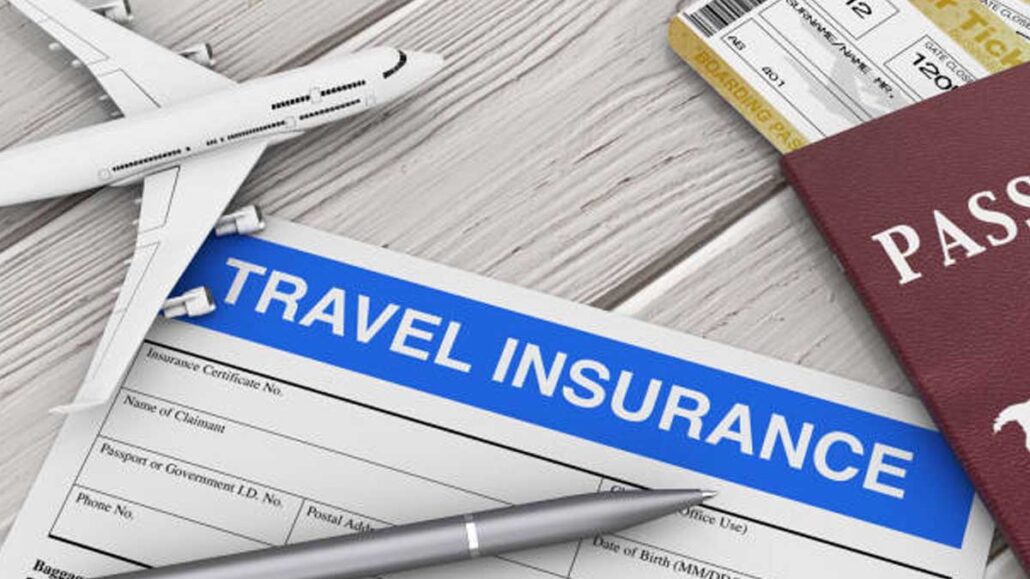Travel delays can throw a wrench in even the most meticulously planned trips, leading to unexpected expenses and frustrating setbacks. Fortunately, travel insurance can offer a financial safety net, helping to reimburse you for the costs incurred due to unforeseen delays. However, filing a travel insurance claim after a trip delay can be daunting. Understanding the requirements, gathering necessary documentation, and presenting a compelling case are all crucial steps in securing a successful claim.

This guide aims to demystify the process of filing a travel insurance claim after a trip delay. We will outline the essential steps involved, provide tips for maximizing your chances of reimbursement, and address common pitfalls to avoid. Whether your flight was canceled, your luggage was lost, or unforeseen circumstances caused a significant delay, this guide will equip you with the knowledge you need to pursue your travel insurance claim with confidence.
Understanding Trip Delay Coverage
Before diving into the claims process, it’s crucial to understand your travel insurance policy’s trip delay coverage. Trip delay coverage typically reimburses you for reasonable and necessary expenses incurred due to a covered trip delay, such as:
- Accommodation: Costs for additional hotel stays, if your trip is delayed beyond a specified duration (usually 6-12 hours).
- Meals: Expenses for meals during the delay.
- Transportation: Costs for alternative transportation if your original transport is delayed or canceled.
- Other Expenses: Some policies may cover other expenses, like communication costs or essential toiletries.
Steps to File a Travel Insurance Claim After a Trip Delay
1. Gather Documentation
The key to a successful travel insurance claim is thorough documentation. Ensure you have the following:
- Travel Insurance Policy: A copy of your travel insurance policy, highlighting the trip delay coverage details.
- Proof of Trip Delay: Documentation from your airline or travel provider confirming the delay, its duration, and the reason for the delay.
- Expense Receipts: Itemized receipts for all expenses incurred due to the delay (accommodation, meals, transportation, etc.).
- Itinerary and Travel Documents: Copies of your original itinerary, flight tickets, and other travel documents.
2. Contact Your Travel Insurance Provider
Reach out to your travel insurance provider as soon as possible after the delay occurs. They will guide you through the claims process, provide the necessary claim forms, and answer any questions you may have.
3. Complete the Claim Form
Fill out the claim form accurately and completely. Provide all the required information, attach the supporting documentation, and ensure you sign and date the form.
4. Submit Your Claim
Submit your completed claim form and supporting documents to your travel insurance provider. Follow their instructions for submission, which may be online, via mail, or both.
5. Await the Decision
Once your claim is submitted, the insurance company will review it. The processing time can vary, so be patient. If additional information is required, they will contact you.
6. Receive Your Reimbursement
If your claim is approved, you will receive reimbursement for your covered expenses. The payment method may vary depending on your insurer and your preferences.
Tips for a Smooth Claims Process
- Document Everything: Keep all receipts, confirmations, and communications related to the trip delay.
- Contact Your Insurer Promptly: Don’t delay in notifying your insurance provider about the trip delay.
- Be Honest and Accurate: Provide truthful and accurate information on your claim form.
- Keep Copies of Everything: Make copies of all documents you submit for your records.
- Follow Up: If you haven’t heard back within a reasonable time, follow up with your insurer.
Common Reasons for Trip Delay Claims
- Weather-Related Delays: Flight cancellations or delays due to severe weather conditions like storms, hurricanes, or blizzards.
- Mechanical Issues: Technical problems with the aircraft or transportation causing delays or cancellations.
- Air Traffic Congestion: Delays due to overcrowded airspace or airport congestion.
- Natural Disasters: Unexpected events like earthquakes, volcanic eruptions, or tsunamis disrupting travel plans.
- Labor Strikes: Strikes by airline or airport staff leading to flight disruptions.
Frequently Asked Questions
What qualifies as a trip delay?
A trip delay typically refers to a significant delay in your travel plans due to unforeseen circumstances, such as:
- Severe weather
- Mechanical issues with the aircraft or transportation
- Natural disasters
- Strikes or labor disputes
- Airline overbooking
The specific definition of a trip delay and the minimum delay duration required for coverage will be outlined in your policy.
What expenses are covered under trip delay coverage?
Trip delay coverage typically reimburses you for reasonable and necessary additional expenses incurred due to a covered delay, such as:
- Accommodation expenses for overnight stays
- Meals
- Transportation costs to and from the airport or alternative accommodations
How long does it take to process a trip delay claim?
The claim processing time can vary depending on the complexity of your claim and the workload of your insurance provider. However, most claims are processed within a few weeks.
What if my claim is denied?
If your claim is denied, you’ll receive a written explanation from your insurance provider outlining the reasons for the denial. You may have the option to appeal the decision if you believe it was made in error.
Can I file a trip delay claim if I have other travel insurance coverage?
Yes, you can usually file a trip delay claim even if you have other travel insurance coverage, such as trip cancellation or baggage delay coverage. However, it’s important to understand how the different coverages interact and avoid claiming the same expenses under multiple coverages.
Conclusion
Trip delays can be frustrating, but travel insurance can alleviate some of the financial burdens. Understanding your coverage and following the claims process diligently can help you receive the reimbursement you’re entitled to. Remember, thorough documentation and prompt communication with your insurance provider are crucial for a smooth and successful claim experience.

